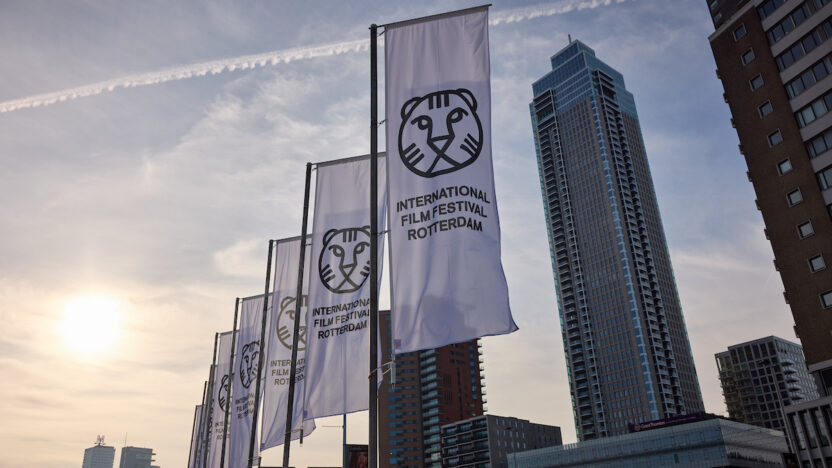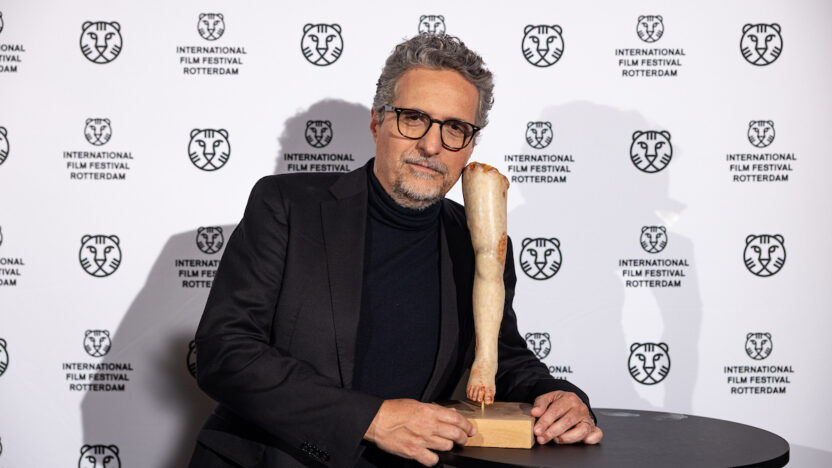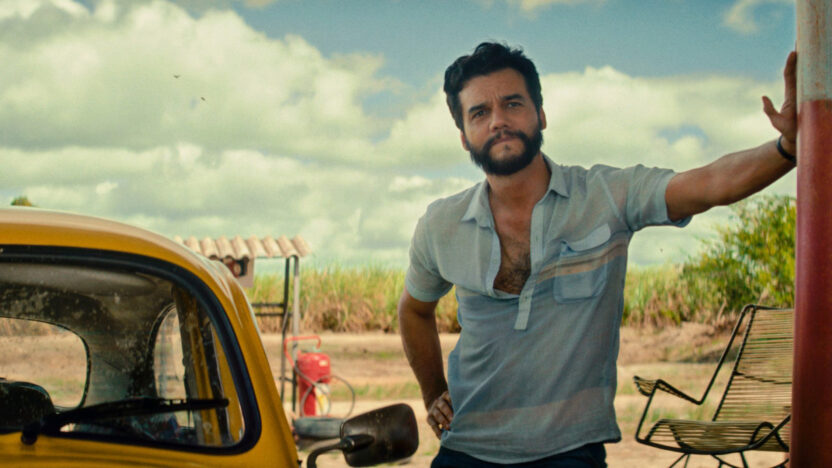Three IFFR-backed titles awarded in Cannes
The Grand Prix, the festival’s second top prize, going to All We Imagine as Light by Payal Kapadia capped a Cannes in which titles supported by the Hubert Bals Fund and IFFR Pro shone brightly. With five IFFR-backed titles having premiered across the selections, we’re celebrating the reaction to all the supported talent, with their films receiving glowing recognition and rave reviews.

All We Imagine as Light wins Grand Prix
Payal Kapadia had been the first Indian filmmaker to screen a film in the Cannes main competition in over 30 years and now makes history as the first to win the festival’s second prize with her fiction feature debut. The prize was matched by the resounding reaction from the press on this “gorgeous romance” (Little White Lies) that follows the lives of two women moving through monsoon season in Mumbai.
“This is a glorious film,” said The Guardian, echoed by IndieWire, the BBC, amongst others, who all awarded the “magical” film top marks. They praised its “enriching humanity and gentleness” that was “both dreamlike and like waking up from a dream.” IndieWire labelled it a “sensual triumph.”
The film was awarded crucial development funding in 2019 by the Hubert Bals Fund before it was presented at IFFR Pro’s co-production market, CineMart in 2020. The Hubert Bals Fund then offered the project HBF+Europe: Minority Co-production Support, and as a Dutch co-production with BALDR Film, it received NFF+HBF funds via the Netherlands Film Fund.
Mongrel awarded Special Mention Caméra d’Or
The Caméra d’Or recognizes outstanding first feature films across the selections, with the Special Mention this edition going to another title backed by the Hubert Bals Fund and IFFR Pro. Co-directors Wei Liang Chiang and You Qiao Yin received the prize for their debut Mongrel, a touching and vital portrait of migrant care workers in Taiwan.
Reviews praised the absorbing and compassionate way in which the film dealt with its subject. IndieWire wrote that the “impressive” debut “taps into tragically universal notions of feeling invisible or ineffectual in one’s day-to-day survival.” The Guardian praised the film’s “impressive artistry” and the “secular transcendence” of the film’s lead.
The project was presented at the second edition of IFFR Pro’s work-in-progress programme Darkroom at IFFR 2024, after it was supported twice by the Hubert Bals Fund with development funds and HBF+Europe co-production funds.

Rising star award for Baby actor
Actor Ricardo Teodoro won the Prix Fondation Louis Roederer de la Révélation, the rising star award, for his role in Baby by Marcelo Caetano. He plays Ronaldo, the 42-year-old man who takes the 18-year-old Baby under his wing following his release from a juvenile detention centre, assuming the role of both a parental figure and lover.
As well as the “bouncy, pop-infused” soundtrack, reviews praised the film’s portrayal of the multidimensional queer experience in Brazil, with Cineuropa writing: “viewers leave with not just a story, but also a fuller picture of many possible lives and moments in São Paulo – to be queer, to feel alive, to run from the police, to celebrate your birthday with your friends.”
The film was supported by the HBF for development and through the NFF+HBF scheme through its Dutch co-producers Circe Films and Kaap Holland Films, as well as participating in the BoostNL development programme together with the Netherlands Film Festival and its presentation at CineMart in 2018.

More praise for supported titles
To a Land Unknown by Palestinian-Danish filmmaker Mahdi Fleifel found widespread praise as a vital film on the plight of Palestinian refugees in Greece. Variety called it a “confident, angry, fully-realised drama” that was “crafted with tremendous empathy,” while IndieWire described a “tour-de-force” that’s “bursting with an overabundance of humanity.” Elsewhere, reviewers praised the powerful performances of the leads that do much to avoid a straightforward portrayal of the refugee experience.

Trương Minh Quý’s story of two gay miners, Viet and Nam, was praised in Screen as “a richly personal blend of the authentic and the abstract” that gives issues like Vietnamese history, border crossings, gay romance, and coal mining a “wonderfully textured, almost hand-made quality which was achieved by shooting on 16mm film stock.” The International Cinephile Society concludes: “this might have been a masterpiece.”

A list with articles
-

IFFR signs joint statement in support of Berlinale Festival Director Tricia Tuttle and institutional independence
Published on:-
News
-
Press release
-
-

The Secret Agent director Kleber Mendonça Filho remembers his first IFFR visit: “we came with 10 posters and 200 postcards”
Published on:-
Hubert Bals Fund
-
Interview
-
-


